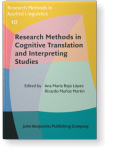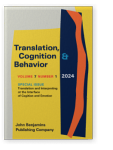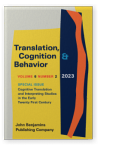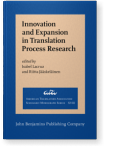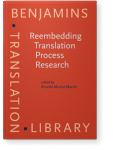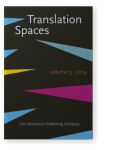Marina Ramos Caro
List of John Benjamins publications for which Marina Ramos Caro plays a role.
2025 Chapter 11. Psychophysiological methods Research Methods in Cognitive Translation and Interpreting Studies, Rojo López, Ana María and Ricardo Muñoz Martín (eds.), pp. 256–278 | Chapter
In recent years, psychophysiological methods have gained prominence in CTIS research, particularly concerning emotional aspects. These methods emphasize the physical manifestations that connect cognition and emotion. This chapter explores three widely used psychophysiological methods: skin… read more
2024 When faces don’t lie: Physiology and facial expressions in the reception of audio described porn Translation and Interpreting at the Interface of Cognition and Emotion, Rojo López, Ana María and Purificación Meseguer Cutillas (eds.), pp. 116–139 | Article
In the last decades, Cognitive Translation Studies (CTIS) have witnessed a growing expansion of Audio Description (AD), with emphasis on experimental studies examining the psychological factors that influence the creation and reception of AD. While most studies have focused on the creation phase… read more
2023 Experimenting with audio description: When participants are all ears in CTIS Cognitive Translation and Interpreting Studies in the Early Twenty First Century, García, Adolfo M., Edinson Muñoz and Néstor Singer (eds.), pp. 211–229 | Article
After years in the shadows of translation, research on audio description (AD) is now gaining momentum thanks to its contribution to a more accessible and inclusive world. This paper claims that experimental AD studies have a rightful place in cognitive translation and interpreting studies (CTIS)… read more
2018 Chapter 6. The role of expertise in emotion regulation: Exploring the effect of expertise on translation performance under emotional stir Innovation and Expansion in Translation Process Research, Lacruz, Isabel and Riitta Jääskeläinen (eds.), pp. 105–129 | Chapter
We investigate the influence of expertise on emotion regulation and its consequences for translation performance. Using Lehr’s (2013) methodology, we explore the influence of personality factors and expertise level on induced emotional impact. We compare performance of translation students and… read more
2016 Can emotion stir translation skill? Defining the impact of positive and negative emotions on translation performance Reembedding Translation Process Research, Muñoz Martín, Ricardo (ed.), pp. 107–130 | Article
The present paper reports on an experiment to measure the impact of emotions and certain personality traits on translation performance. The study replicates Lehr’s (2013) methodology, but also explores the influence of personality factors on the induced emotional impact. Unlike Lehr’s study, our… read more
2014 “Feeling” audio description: Exploring the impact of AD on emotional response Translation Spaces 3, pp. 133–150 | Article
There is evidence suggesting that watching movies usually provokes an emotional response in the audience that may differ according to the type of film viewed. For example, Grodal (2009) argues that the type of response provoked by mainstream cinema is different from that elicited by avant-garde… read more
